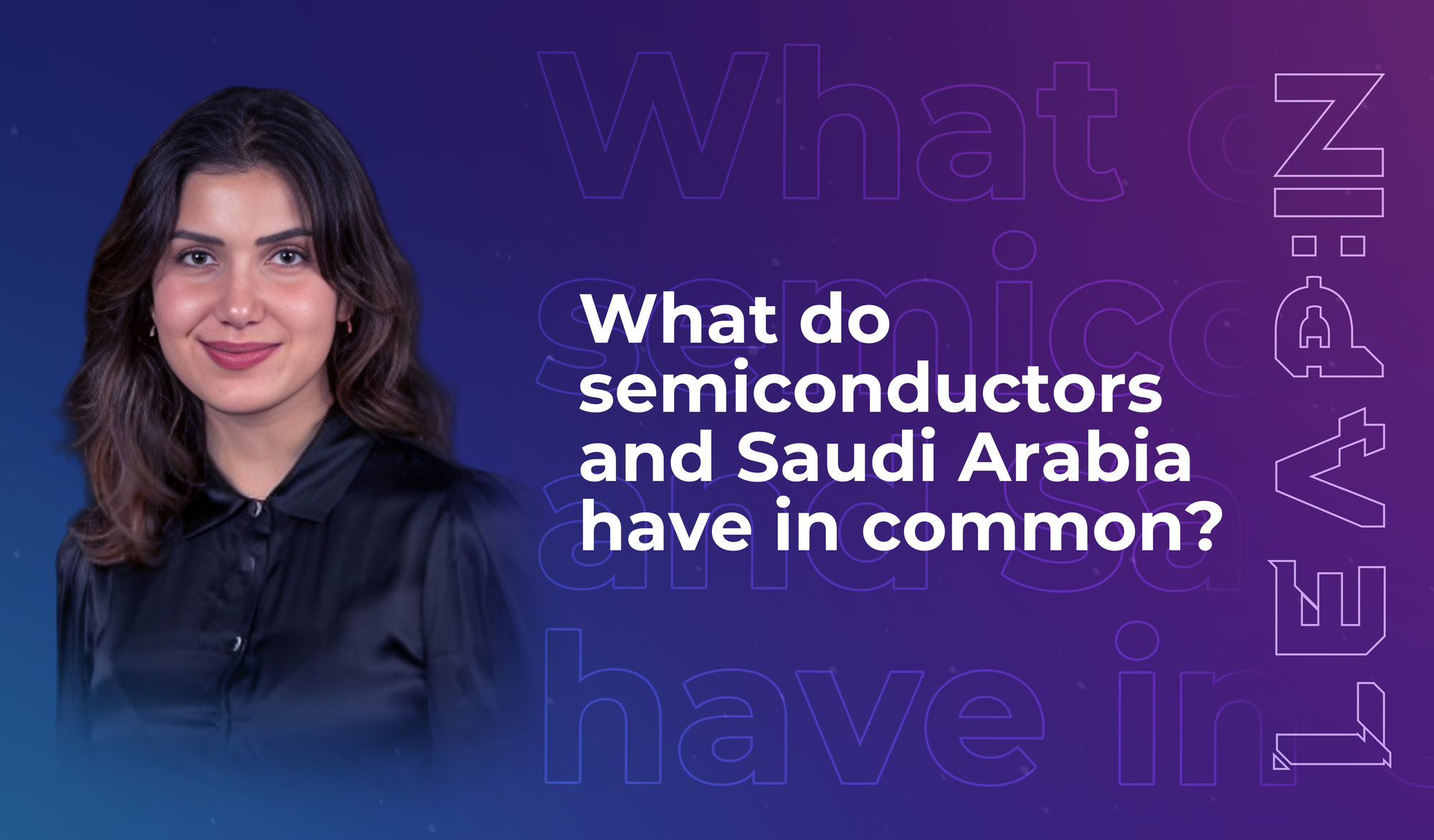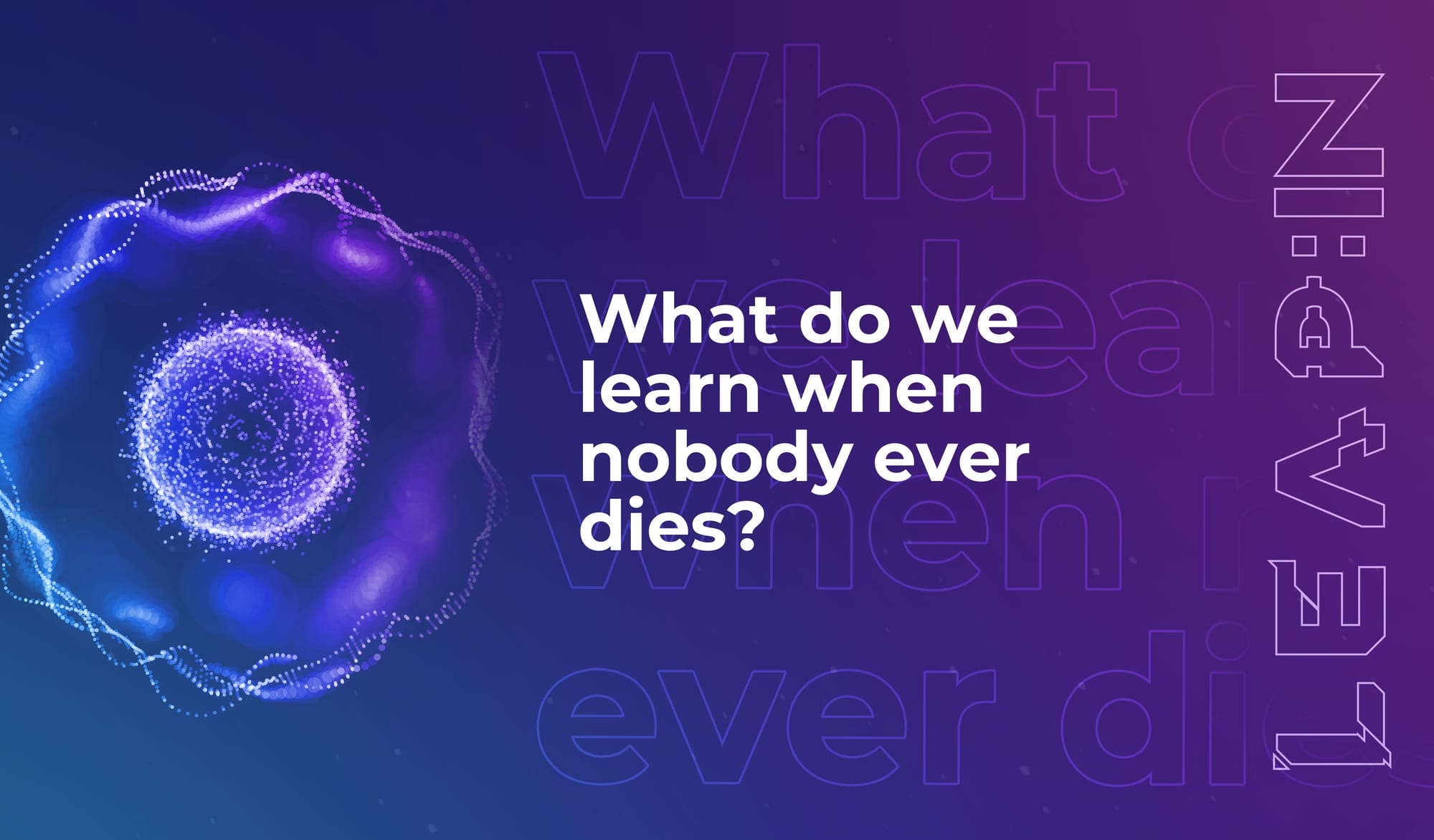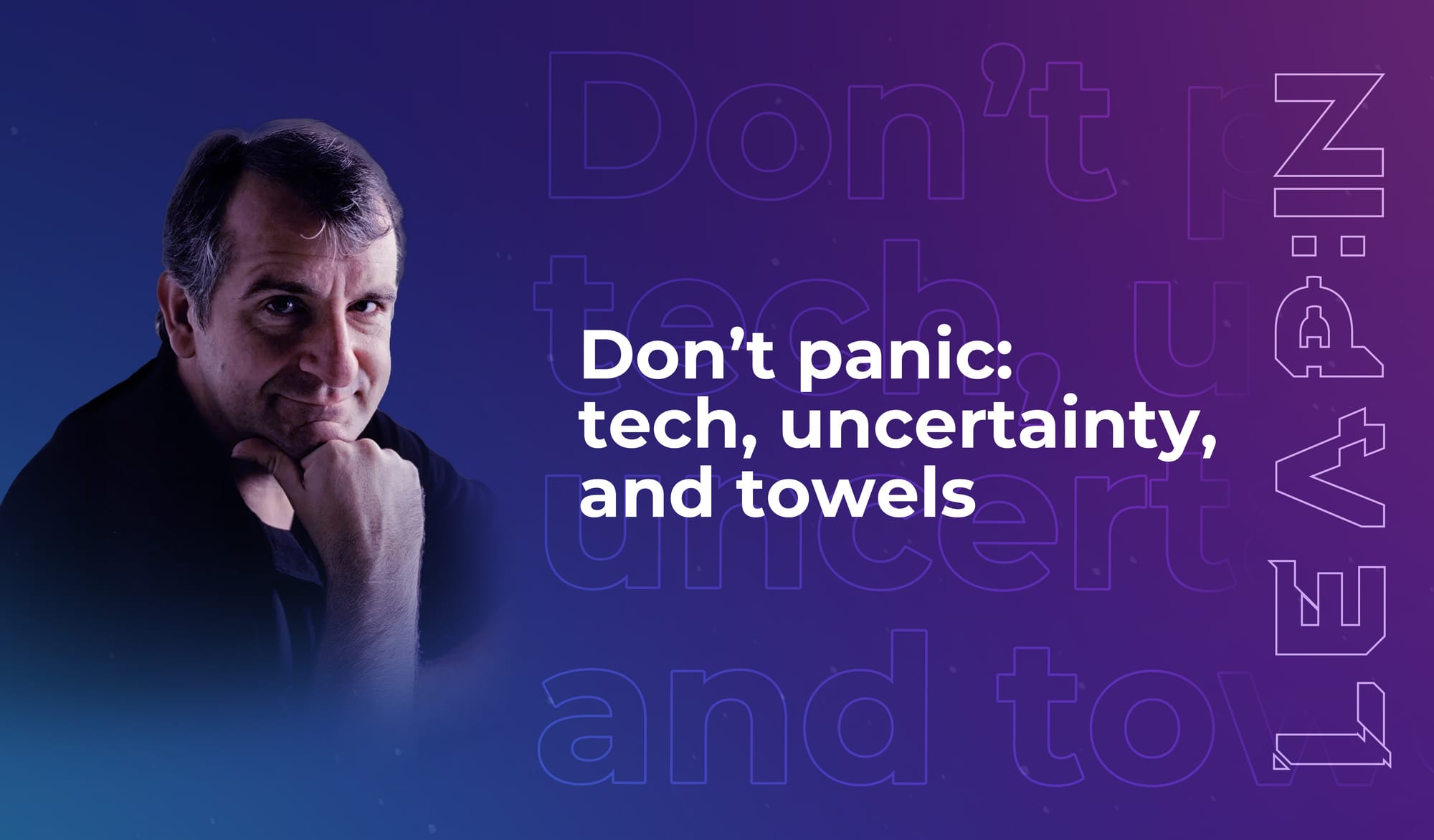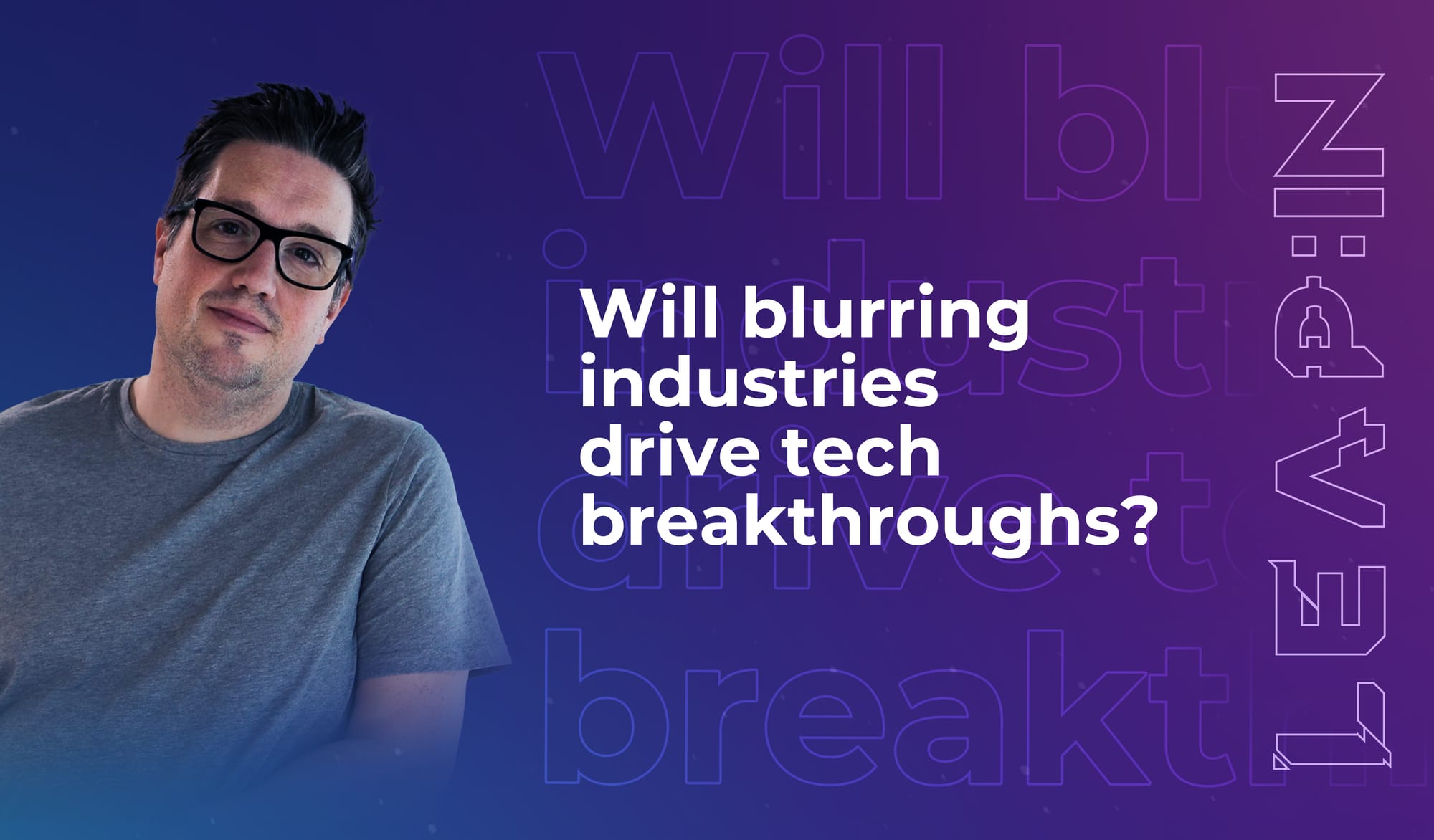
What do semiconductors and Saudi Arabia have in common?
Innovation emerges – but the groundwork was laid over time


Welcome to the 39 new techies who have joined us this week.
If you haven’t already, subscribe and join our community in receiving weekly tech insights, updates, and interviews with industry experts straight to your inbox.
Insights and inspiration from the global LEAP community – in your inbox every week.
What Quarta said:
“I had my first inspiration when I was five years old – that’s when I decided I wanted to study ageing and find a way to change how we age.”
Immortality has always fascinated human imagination. It shows up in fiction a lot. In a 1947 short story called The Immortal by Jorge Luis Borges, life without death dissolves into apathy. And more recently in Iain M. Banks’ Culture novels, post-scarcity immortals reinvent themselves endlessly, searching for meaning in a life without endings.
Over on Reddit, people share their (equally bold) speculations. In a thread (on the subreddit r/Futurology) about which field of study has the best potential for human advancement, one user wrote:
“Best field in terms of potential is without a doubt genetic engineering…elimination of aging.”
And another user wondered if ageing could be optional within the next couple of decades:
“By 2040, people may choose whether to age or not. Ageing could become a lifestyle choice.”
In another thread, Redditors debated the social systems of a deathless society:
“Prisons would have to change completely. Sentences couldn’t be ‘life’ anymore. Retirement wouldn’t make sense either. Whole economies would shift.”
All of this is speculative. But these conversations reveal how quickly technological dreams can lead us into cultural, ethical, and deeply philosophical territory.
Anthropologists remind us that societies depend on endings. Death, for example, is an important cultural mechanism for renewal.
In his 1980 book The Limbo People: A Study of the Constitution of the Time Universe among the Aged, Haim Hazan described how older people live in ‘separate presents’ – temporal worlds shaped by memory and disconnection from linear time. Elders embody continuity precisely because their lives are finite. Without death, continuity risks stagnation.
In Yoruba cosmologies from south-western Nigeria and Benin, cycles of death and rebirth enable constant renewal. The concept of abiku or naparay frames life as a continuum – where ancestors return through newborns. Here, death isn’t an ending, but a re-entry point; and a deathless society would rupture that rhythm.
And cultural anthropologist Victor Turner’s idea of liminality (the in-between space of rites of passage) is a reminder of how important it is to honour the moments just after one thing ends, and before the next thing begins. Death rituals are archetypal liminal thresholds, allowing communities to transform. Without death, the threshold vanishes. Life could become a state of perpetual suspension; with no clear transitions from one stage to another.
So if immortality did become a reality for human beings, it would totally change our cultures, our rituals, and identities; and the way we find meaning in being alive.
At LEAP, when we speak to scientists like Marco Quarta, there’s more purpose behind the quest for longer lives.
He targets senescent cells (or ‘zombie cells’) that accumulate with age, driving inflammation and degeneration. His aim is healthier ageing, not immortality.
(You can read our interview with Quarta here).
And Noah Davidsohn (CSO at Rejuvenate Bio) told us:
“I was particularly drawn to epigenetics for its potential to create a significant impact on the entire status of the cell, aiming to reset cells to a younger state.”
Again, Rejuvenate Bio’s work is focused on developing therapies for age-related diseases – taking steps towards vitality, not infinity.
(Find our full interview with Davidsohn here).
Still, the Reddit visions are kind of captivating. Imagine a library where no books are ever removed. Knowledge piles up. Stories remain, never replaced. We can’t help but wonder if we’d stay creative, or if we’d lose that spark; if wisdom would grow over time, or if we’d all become stuck in more and more narrow mindsets as the years went by.
But this isn’t pure fantasy. In our digital lives, we’re already immortalising ourselves in data. We’re archiving our thoughts and feelings and knowledge in posts, photos, and code. As Dr. Kathrin Kind-Trueller (Chief Data Scientist / AI A. Director Nordics) told us,
“The stories data tells us are potent, capable of guiding decisions that shape our world, from the mundane to the monumental.”
Data can change the world. So maybe the immortality we’re actually building isn’t so much in biology, but in memory – captured and saved in digital spaces.
The knowledge that we don’t live forever is a part of who we are. Philosopher Bernard Williams argued (in his essay The Makropulos Case: Reflections on the Tedium of Immortality) that immortality might strip life of meaning – because without endings, stories lose their shape.
Mortality gives life urgency and story. It structures our experience. So when science and tech edges toward longevity, we need to ask how we keep meaning alive.
The library of immortals may never exist in the physical world. But in our science, our rituals, our stories, and our data, we’re already testing the boundaries of endurance.
If knowledge and emotions can live forever in data and tech – how does that change what it means to be human?
We’ll see you back in your inbox next week.
Have an idea for a topic you'd like us to cover? We're eager to hear it. Drop us a message and share your thoughts.
Catch you next week,
The LEAP Team

Innovation emerges – but the groundwork was laid over time

Lessons on uncertainty from The Hitchhiker’s Guide to the Galaxy

Why innovation accelerates when industries collide.

Innovation emerges – but the groundwork was laid over time

Lessons on uncertainty from The Hitchhiker’s Guide to the Galaxy

Why innovation accelerates when industries collide.